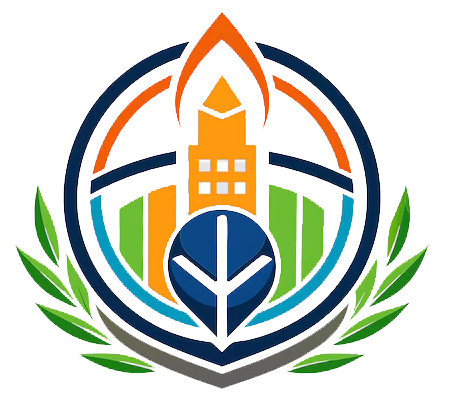- +254729418074
- info@newlifecitymission.org/
- 1808-20117, Kenya -Naivasha
How We Work with Donations at New Life City Mission
Transparent Allocation
Needs-Based Prioritization: Donations are allocated to programs that address Kenya’s most urgent challenges—education, healthcare, poverty alleviation, environmental sustainability, and social justice.
Direct Impact: At least 85% of all donations fund frontline programs, ensuring your contribution reaches those who need it most. The remaining 15% supports operational costs (admin, logistics, and monitoring) to maintain efficiency and scalability.
Emergency Response: A portion of funds is reserved for crises (e.g., droughts, floods, or health emergencies) to provide swift, life-saving interventions.
Community-Led Solutions
Grassroots Partnerships: We collaborate with local leaders, community groups, and beneficiaries to design and implement projects. This ensures solutions are culturally relevant, sustainable, and owned by the people we serve.
Participatory Decision-Making: Communities help prioritize how donations are used, fostering trust and long-term engagement.
Measurable Impact
Data-Driven Programs: We track progress through metrics like school enrollment rates, healthcare access, income levels, and environmental improvements.
Regular Audits: Independent auditors review financial records and program outcomes to ensure accountability and compliance with global nonprofit standards.
Impact Reports: Donors receive biannual updates detailing how their contributions created change, including stories, photos, and quantitative results.
Sustainable Development
Long-Term Investments: Donations fund infrastructure (e.g., schools, clinics, clean water systems) and capacity-building initiatives (vocational training, agricultural cooperatives) to create lasting change.
Environmental Stewardship: Funds support reforestation, renewable energy projects, and climate-resilient practices to protect Kenya’s ecosystems.
Ethical Stewardship
Zero Tolerance for Corruption: Strict anti-fraud policies and transparent procurement processes safeguard every shilling.
Compliance: We adhere to Kenyan nonprofit regulations and global best practices for financial accountability.
Donor Engagement
Choice and Flexibility: Donors can designate funds to specific causes (e.g., “Educate a Child,” “Healthcare for All”) or trust our team to allocate resources where needs are greatest.
Recognition: Contributors are acknowledged through annual reports, social media shoutouts, and personalized thank-you notes. Major donors may receive naming opportunities for projects.
Open Dialogue: We welcome donor questions, site visits, and feedback to maintain trust and collaboration.
Our Pledge to You
“Every donation, large or small, is a step toward a Kenya where dignity and opportunity are not privileges but rights. We honor your trust by working tirelessly to ensure your generosity creates ripples of transformation that last generations.”
How are our programs being handle?
1. Community Engagement
We collaborate with individuals, families, and local leaders to understand challenges, build trust, and co-create sustainable solutions.
2. Program Implementation
Through education, healthcare, economic empowerment, and environmental initiatives, we drive impactful change and foster resilience.
3. Sustainable Growth
By nurturing self-reliance and unity, we empower communities to break cycles of poverty, inequality, and injustice for lasting transformation.
How We End Poverty
1. Empower Through Education and Skills Development
Free Quality Education: Build and support schools in underserved areas, ensuring access to education for children, especially girls and marginalized groups.
Vocational Training: Equip youth and adults with market-relevant skills (e.g., carpentry, tech, agriculture) to boost employability and entrepreneurship.
Adult Literacy Programs: Provide basic education and financial literacy training to empower parents to support their families.
Why It Works: Education breaks generational poverty by fostering critical thinking, confidence, and economic independence.
2. Create Inclusive Economic Opportunities
Agricultural Innovation: Train farmers in climate-smart techniques, provide drought-resistant seeds, and connect them to fair markets.
Job Linkages: Partner with local industries to create jobs and apprenticeships for skilled graduates.
Why It Works: Sustainable income sources enable families to afford healthcare, nutrition, and housing, lifting them out of survival mode.
3. Strengthen Systems and Social Safety Nets
Universal Healthcare Access: subsidize health insurance for vulnerable households.
Social Protection Programs: Advocate for government policies that provide cash transfers, school feeding programs, and disaster relief to the poorest communities.
Gender Equity Advocacy: Address systemic inequalities by empowering women through land rights, leadership training, and anti-discrimination campaigns.
Why It Works: Systemic change ensures marginalized groups are protected, resilient, and able to participate fully in society.
4. Hunger Research
To create the right solutions to end hunger, we must understand the people and communities facing hunger. We conducts research like the Map the Meal Gap study to learn more about food insecurity in local communities.
- X
- LinkDin
- Youtube
- TikTok
Our mission is to empower communities across Kenya by fostering sustainable development, advocating for social justice, and providing essential resources in education, healthcare, and economic growth. We are committed to uplifting vulnerable populations, promoting environmental conservation, and driving impactful change through collaboration, innovation, and integrity.
Useful Links
Subscribe Now
Don’t miss our future updates! Get Subscribed Today!
©2025. New Life City Mission All Rights Reserved.
